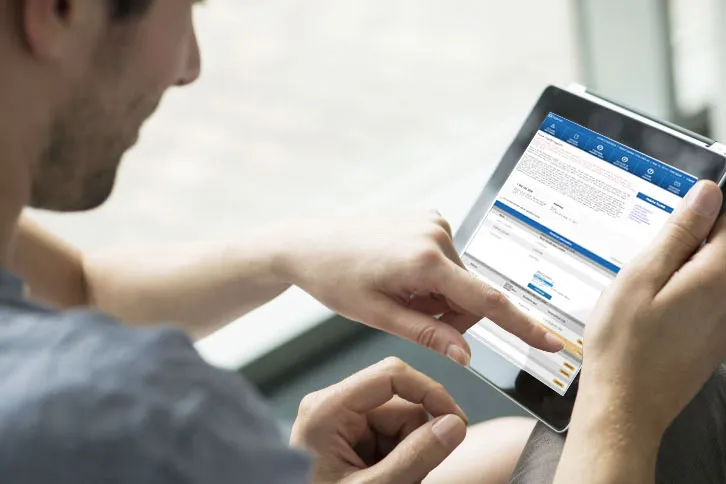Does a Credit Freeze Hurt Your Credit Score?

A credit freeze does not affect your ability to qualify for loans or credit cards, but it can complicate the process of a creditor evaluating your credit applications.
How Does a Credit Freeze Work?
Freezing your credit is something you can do to help protect against identity thieves or other fraudsters attempting to secure credit in your name. A credit freeze limits access to your credit reports, and to credit scores based on data in those reports. Because checking your credit report and credit score is typically the first step in processing any credit application, having credit freezes in place at all three credit bureaus (Experian, TransUnion and Equifax) is an effective way to stop unauthorized credit accounts.
Credit freezes also limit authorized access to your credit reports, however, so they can complicate the processing and approval of your legitimate loan or credit card applications.
The national credit bureaus will activate (and deactivate) a credit freeze for free upon request. You must contact each bureau separately to freeze your respective credit report. At Experian, you'll create an online account to use when requesting a credit freeze.
If you freeze your credit reports, you'll need to unfreeze (or "thaw") them for lenders to be able to process your legitimate credit applications. You'll also have to remove a freeze to grant access to landlords, cellphone providers, insurance companies, car rental agencies and other nonlender parties that perform credit checks as part of their business practices.
You can log in to your online account to easily remove your Experian credit freeze or request removal of your credit freeze by phone (it will be lifted within one hour). You will choose whether to remove the freeze permanently or request a temporary suspension of the freeze for a specified number of days.
Can a Credit Freeze Affect Getting Approved for Credit?
It's important to understand that credit freezes limit access to your credit reports, but they don't affect tracking activity on current credit accounts. Payments on your existing loans and credit accounts will continue to be reported whether or not a credit freeze is in effect, so timely payments and careful use of credit will continue to benefit your credit during a freeze. By that same token, late or missed payments and excessively high credit card balances will damage your credit even if a credit freeze is in place.
A credit freeze doesn't change your ability to qualify for a loan or credit card, but it can be an obstacle to getting your application approved: Unless you unfreeze your credit before you submit your application, the lender will not be able to use your credit report to judge your qualifications as a borrower.
Lenders cannot use a credit freeze as grounds for denying your application, but they also are not obligated to follow up with applicants whose credit reports are inaccessible. Setting aside your application technically isn't the same as denying it, but the end result could be the same for you: You won't get the credit in question, even if you're qualified for it based on your scores and credit history.
Should I Freeze My Credit?
It's a good idea to freeze your credit if you know or strongly suspect your Social Security number has been stolen or exposed in a data breach, or if you have evidence of identity theft or bogus attempts to open credit in your name. If you know you will not be seeking new loans or credit cards in the foreseeable future, it might make sense to freeze your credit reports as a precaution. But remember that you might need to thaw your accounts when dealing with companies that include credit checks in their customer-screening processes, such as when renewing a car insurance policy, renting a car or opening a new utility account.
Unless you are certain your personal data is exposed or has been abused, you might want to consider adding fraud alerts to your credit files instead of freezing them. Somewhat less drastic than a freeze, a fraud alert requires creditors who receive applications in your name to verify your identity before proceeding with a credit check. There are several types of fraud alerts, so do your research to see which one is right for you.
If you want to limit access to your credit report and also get alerts when someone attempts to access your report while it's secured, consider a credit lock. Experian offers credit locking as part of its Premium membership.
How to Get a Credit Freeze
Experian, TransUnion and Equifax all have webpages you can use to set up a credit freeze. (They also have instructions on how to request a freeze by phone or mail.) When requesting a freeze by mail, you'll need to provide scans or hard copies of a photo ID, proof of address (recently postmarked mail will suffice) and your Social Security number. Make sure to use a secure device and network—not a public Wi-Fi access point, for instance—if you're making the request online.
The same pages you use to set up a credit freeze can be used to remove or suspend a freeze, and they also provide instructions for lifting a freeze by phone.
Although it's not free of drawbacks, a free credit freeze is a powerful tool that can protect you from having fraudulent loans or credit cards opened in your name.
Freeze your credit file for free
A security freeze, often known as a credit freeze, limits access to your Experian credit report—helping protect you against identity theft.
Create a free accountAbout the author
Jim Akin is freelance writer based in Connecticut. With experience as both a journalist and a marketing professional, his most recent focus has been in the area of consumer finance and credit scoring.
Read more from Jim